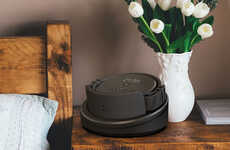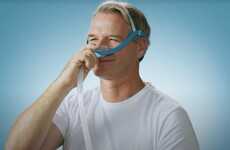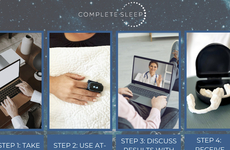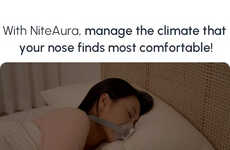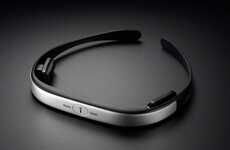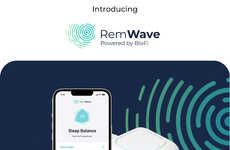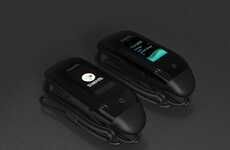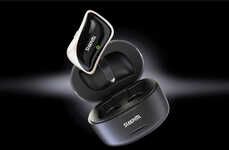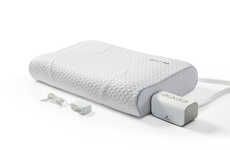
Philips' 'DreamWear' CPAP Mask is Wirelessly Connected to a Beside Unit
Cadhla Gray — October 23, 2015 — Lifestyle
References: usa.philips & psfk
Sleep apnea affects over 100 million people worldwide, while only a fraction of those actually use a CPAP mask like their doctors recommend. That is because most of those devices either involve a mask, a cord or a hose to get tangled up in. They can also cause distractions while falling asleep or cause embarrassment in front of partners. Overall, the sleep therapy devices currently on the market are simply impractical.
The DreamWear CPAP mask is comfortable and cordless, wirelessly connecting to a device that controls it from the bedside table, the 'DreamStation.' This device also sends the patients' doctors information about their sleep patterns and how well the device is working for them. Finally, Philips' DreamMapper program is an online platform that gives reminders, information and motivates people to use their devices and get better sleeps.
The DreamWear CPAP mask is comfortable and cordless, wirelessly connecting to a device that controls it from the bedside table, the 'DreamStation.' This device also sends the patients' doctors information about their sleep patterns and how well the device is working for them. Finally, Philips' DreamMapper program is an online platform that gives reminders, information and motivates people to use their devices and get better sleeps.
Trend Themes
1. Cordless Sleep Apnea Aids - Opportunity for wireless and comfortable CPAP masks that eliminate the hassle of cords and hoses.
2. Wireless Control Devices for Sleep Therapy - Potential for bedside control units that wirelessly connect to sleep apnea aids, improving usability and convenience.
3. Connected Sleep Therapy Platforms - Opportunity for online programs that track and monitor sleep patterns, providing personalized reminders and motivation for consistent use of sleep therapy devices.
Industry Implications
1. Healthcare - Industry can adapt cordless sleep apnea aids to improve patient compliance and overall effectiveness of sleep therapy.
2. Medical Technology - Industry can develop wireless control devices that integrate with sleep apnea aids, enhancing user experience and convenience.
3. Digital Health - Industry can create connected sleep therapy platforms that offer personalized insights and support, ultimately improving patient outcomes.
6.7
Score
Popularity
Activity
Freshness


